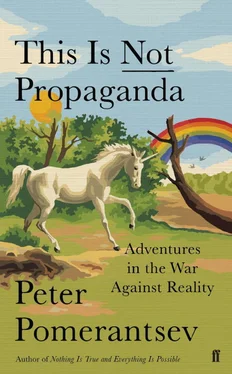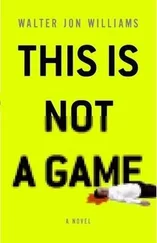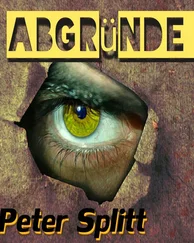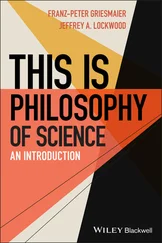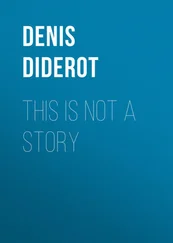Later, when she was studying at the Chinese University of Hong Kong, she began to ask more questions about the system she was brought up in. In the library she discovered books with photos of the Chinese murdered after the anti-regime demonstrations of 1989 in Tiananmen Square, which, unlike most uprisings across the world during that great ‘wave of democratisation’, had been crushed. On the mainland she had never seen images of those events, and there was something stunning about looking at them for the first time. But these books still upheld the state-sanctioned side of things: instead of photos of civilians killed by soldiers, they had pictures of government soldiers purportedly murdered by the demonstrators. Next to the photos other readers had scribbled, ‘Lies!’ The difference between Hong Kong and China, thought Wu, was that in Hong Kong the authorities had to go so far as to create books that showed their version of what happened in 1989, while on the mainland the story was silenced.
This was in 2008, and the Chinese blogosphere was blooming. But Wu found herself irked by how political identities had been categorised, both by the regime and by its opponents. One category was known as ‘right-wing’, which meant being ‘pro-freedom’, pro-West, seeing the state as the root of all evil, and was bundled together with everything from human rights through to the most radical of free-market economics. The opposing position was described as ‘left-wing’, which saw state involvement in the economy as vital and supported the Chinese government in everything apart from its cultural opening up to the West. Wu felt both categories were irrelevant to her personal experience: what if one believed in human rights, for example, but wasn’t so sure about libertarian economics? [5]
When she moved on to a PhD programme in media, technology and communication at Northwestern University in the US, Wu found that American analysis of China could fall into another cliché, imagining some sort of innately freedom-loving Internet user silenced by an oppressive state, ready to jump into the arms of an American-style democracy the moment they could escape censorship.
Wu wanted to work out what really defined political identity in China. She started by analysing the issues that actually defined groups on the Chinese Internet. She found that economic issues, despite what the terms ‘left-wing’ and ‘right-wing’ would imply, were not actually particularly divisive; most people were pretty hazy when it came to economics generally. Neither was censorship something that divided people: both pro- and anti-government voices could want less of it. Instead, the divide lay in what Wu calls the ‘China as a superpower ideology’: a militarist, territorially obsessed nationalism intent on dominating others and which saw China as surrounded by enemies weaving conspiracies against her, which harped on the humiliations China suffered at the hands of European colonial powers in the nineteenth century, humiliations that the party claimed it could relieve by restoring past greatness. There were people who embraced this position, and others who didn’t.
Rather than an alternative, China seemed to provide another variant of what I had encountered in the US and Russia, peddling a nostalgia for a greatness before the ‘century of humiliations’, much like Putin promised to ‘bring Russia off its knees’ and Trump to ‘Make America Great Again’. The Chinese government even invoked colour revolutions as a threat.
After she had defined the party line, Wu wanted to understand more about those who were opposed to it. Her petri dish was a blogging site called Bullog, home to opposition writers, publicists and poets. She had spent years as a dedicated Bullog follower herself. She wanted to know more about the people who visited the site. What did they have in common?
She travelled all across the country, to many towns and cities she’d never visited before. Bullog readers, it turned out, came from all sorts of backgrounds: from civil servants in the interior to fashion-conscious students in the coastal mega-cities; from self-made business people to housewives. They didn’t share much of a coherent ideology when it came to things like economics, but after conducting twenty-seven interviews Wu started to detect a pattern. Many had been voracious readers from a young age: [6]not factual material necessarily, but fiction, plays and poetry. This fitted in with previous studies Wu had come across, where the more creative the literature you read, the more you would be able to imagine a different reality to the one around you.
As they grew up, her fellow Bullogers moved from books to other media, and all shared a deeply emotional bond with it. One man told her how he had cried when the first television had arrived in his rural village – it was his first link with the outer world. Others talked about how they preferred the company of blogging sites and newspapers to their friends and family.
This intense relationship with media in turn led to an awareness of the extent to which their world view and personalities were formed by it. Then would come a moment when they realised how duplicitous the Chinese state media was. For many it was in the aftermath of national catastrophes, earthquakes or train crashes, which the government had attempted to hush up. This provoked a sense that they had been ‘brainwashed’ by the regime and needed to ‘purge’ themselves of the information they had been consuming all their lives. [7]
And so began a journey of what they called ‘leaping over the wall’, a reference to the Great Firewall, which censors material on the Chinese Internet. Finding ways to leap the wall, through the use of various computer programs, became a whole subculture, with its own manuals and slang.
When they leapt the wall, however, the Internet escapees didn’t feel they found ‘reality’ or stable ground elsewhere. There were Chinese anti-regime sites, but many of them indulged in their own disinformation. And the West barely represented a place driven by informed factuality. And so they carried on further and found themselves in a process of always trying to outstrip their own identities, endlessly leaping over walls.
Wu told me she hadn’t been totally happy with the results of her research. It hadn’t given her the clarity she had been hoping for. She now focused on analysing big data, and the results were more solid. It was, however, the very lack of a fixed end point which I found beguiling. It reminded me of how, at the European School, being ‘European’ didn’t mean a new supra-identity, but the ability to move between different ones and wear them lightly. Or of Rashad’s work, where he encouraged those drawn into extremism to unpick the patterns that had closed their attitudes so they could be both Muslim and British, Asian and from Yorkshire.
For the Bullogers, it was their relationship with media, with televisions, radios, books, blogs, which helped them to re-imagine themselves over and over.
That sticky day in Beijing, stuck in traffic on a flyover, with the ‘cranked loop structure’ of the CGTN building in the distance, I found myself turning back to Igor’s first novella, Reading Faulkner. It seemed oddly relevant again, not so much about the Cold War – or maybe it was the Cold War that needed to be redefined. In the novella the author is constantly writing and rewriting his own life and his descriptions of his home town of Chernivtsi in different styles and genres influenced by his favourite author William Faulkner’s book The Sound and the Fury. It was a novella that was in part about one’s relationship with media, full of the sound of typewriters, radio, poetry (and for my parents, shoeboxes of samizdat, radio broadcasts, poems had literally been the things on which their lives had turned).
Читать дальше
